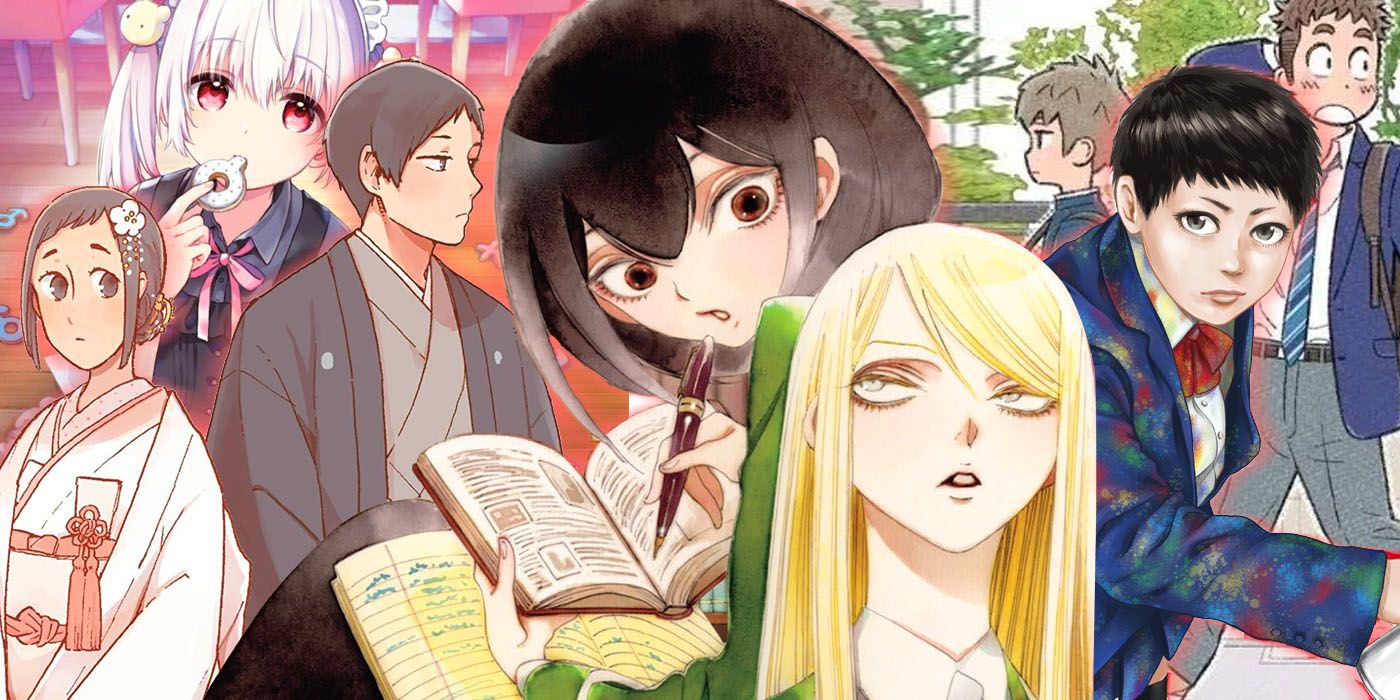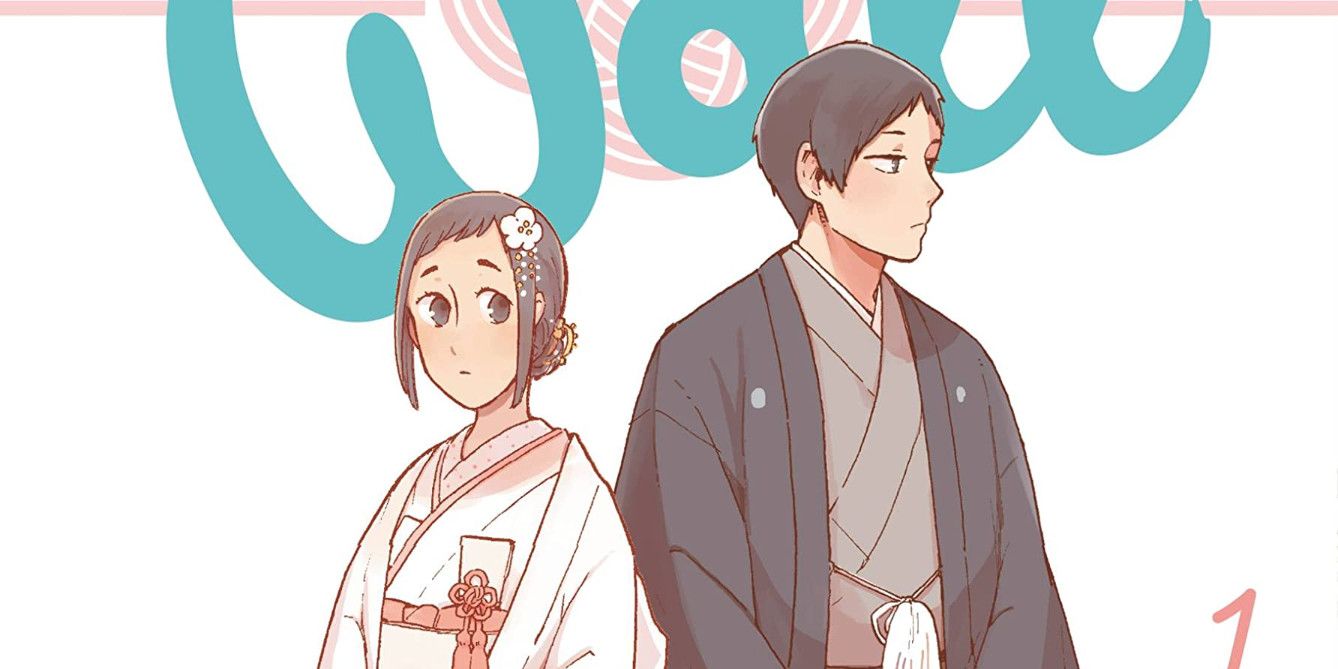June is almost here, and with it comes Pride Month for LGBTQ+ people all around the world. It’s a time for celebrating one’s diversity and advocating for the rights of sexual and gender minorities. Generations past and present have made their mark, leading to more acceptance than ever before. Along with this acceptance comes visibility for the community.
One of the ways this has been accomplished is through fiction, where more creators are writing about characters who fall under the LGBTQ+ umbrella. In the world of manga, award-winning titles like My Brother’s Husband and the growing popularity of the boys’ love genre are just a few examples of progress. Here are five great LGBTQ+ manga that each explore a different identity under the rainbow.
Love Me For Who I Am by Kata Konoyama
When high schooler Tetsu spots his classmate Mogumo wishing to find a place where they belong, he decides to try and make it come true. He tells Mogumo about the café that he works at and invites them to apply. Café Question is a little maid café with a twist; it’s also an otokonoko café, where the biologically male waitstaff present as feminine. Tetsu sells Mogumo on the job when he insists that the other employees are just like them.
Among the staff is a cosplayer who dresses up to escape a stressful life, a gay teen who simply enjoys crossdressing, and a trans girl who isn’t ready to come out yet. However, none of these identities fit Mogumo. In fact, they aren’t a boy or a girl. Called x-gender in Japan, Mogumo is nonbinary. Even in more progressive countries than Japan, nonbinary people are often misunderstood. Humans naturally want to categorize things, so encountering something — or someone — who doesn’t fit into a binary system is confusing.
Throughout its five volumes, Love Me for Who I Am tackles this confusion by exploring Mogumo as a character. As the story progresses, the reader learns with the cast about their comfort levels, interests and struggles. Along the way, everyone else gets their time in the spotlight. With so many identities in the cast, Konoyama highlights the differences between them and what binds them. Nobody truly meets society’s expectations for them, and it causes plenty of hardship, but everyone deserves a place where they can be themselves.
Boys Run the Riot by Keito Gaku
Originally a single chapter one-shot by the same author, Boys Run the Riot is all about self-expression. Transgender teen Ryo only feels himself when he’s wearing his favorite street fashion brands, until he runs into his classmate Jin while shopping. The two strike a friendship and decide to start their own clothing line.
While they try to get their brand off the ground, Ryo experiences things that a lot of trans teens do and fear going through. From struggling to bind his chest to being outed, the plot throws a lot at him. Being a trans man himself, author Keito Gaku knows how to get the emotion in these scenes across better than most. With smart visuals and palpable tension when needed, even those who can’t relate to Ryo’s situation can feel the ups and downs. That said, it can hit close to home for those who have gone through similar experiences.
What truly shines in this four-volume series, besides Gaku likely pulling from his own experiences, is how Boys Run the Riot celebrates being an outcast. Ryo, Jin and their label don’t see what’s so wrong with being different. There’s no shame in it and there never should be. When misfits band together, they can overcome whatever stands in their way, be it following their dreams or finding a sense of belonging.
I Want to Be a Wall by Honami Shirono
This manga is a brand-new release from publisher Yen Press. Yuriko and Gakurota are newly married, but they’re far from the lovey-dovey couple that everyone expects them to be. The truth is that Gakurota’s gay and in love with his childhood friend, while Yuriko just may be the first openly asexual protagonist in a manga series. They married for appearances and to get their families off of their backs, but the expectations just keep coming.
Even though a typical husband-and-wife relationship is impossible for these two, they forge a bond that’s just as strong. Yuriko fully supports Gakurota’s feelings for his friend, while he commits himself to being a good partner when he can. Gakurota takes interest in her hobbies and respects her boundaries, saying that he won’t so much as hold Yuriko’s hand if it makes her uncomfortable.
I Want to Be a Wall has a refreshing perspective on asexuality. Typically, media portrays asexual characters as emotionless robots, or they eventually drop that label once they find a “special exception.” Yuriko is far from this archetype. She feels her emotions strongly, getting excited and upset like anyone else. She also loves reading about fictional relationships in her BL collection. The only time she’s against a relationship is when she herself is involved.
A White Rose in Bloom by Asumiko Nakamura
From the same creator as beloved BL series Classmates, A White Rose in Bloom feels very much like a yuri version of Nakamura’s high school love story. When Ruby is left with no choice but to spend winter vacation at her boarding school with only the steely Steph for company, she thinks she’s going to spend the whole break alone. To her surprise, the two bond after Steph makes a simple Christmas wish come true.
After their holiday, the girls are brought together again when Ruby needs a tutor. The romantic tension is palpable, but there’s more beneath the surface of this story. While Ruby deals with the aftermath of her parents’ divorce, Steph’s past is shrouded in enough mystery to spread rumors. The headmistress of the school is somehow involved, and she clearly has ulterior motives. With these kinds of tropes in play, it almost feels like an old BL story than a modern yuri. This spin could lead to interesting developments further down the line. With only two volumes out so far, there’s plenty of room for growth in their relationship and mysteries to unravel.
I Think Our Son is Gay by Okura
From the same creator as That Blue Sky Feeling, this manga explores being a gay teen from a different perspective. Japanese housewife Tomoko has a sneaking suspicion that her son Hiroki is gay, but she won’t say anything until he says so himself. Hiroki isn’t as secretive as he thinks, but all she does is smile and pretend she didn’t see anything.
This cute, short-form series follows Tomoko through her daily life, watching over her sons and doing whatever she can to make them feel loved. If something makes Hiroki upset, she finds a way to comfort him. When someone else puts expectations on him, she redirects the conversation. Should Hiroki make it obvious that he has a crush on his best friend, Tomoko pretends that she thinks it’s just a great friendship.
If nothing else, this manga is an example of how parents can subtly support their children. To many, Tomoko embodies what they wish their parents were like, but the things she does come with being a parent. She fulfills her duties to her children by giving them advice, nudging them in the right direction and doing her best to understand them.
Read Next






